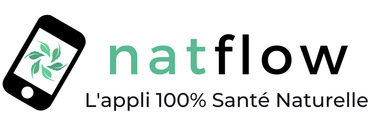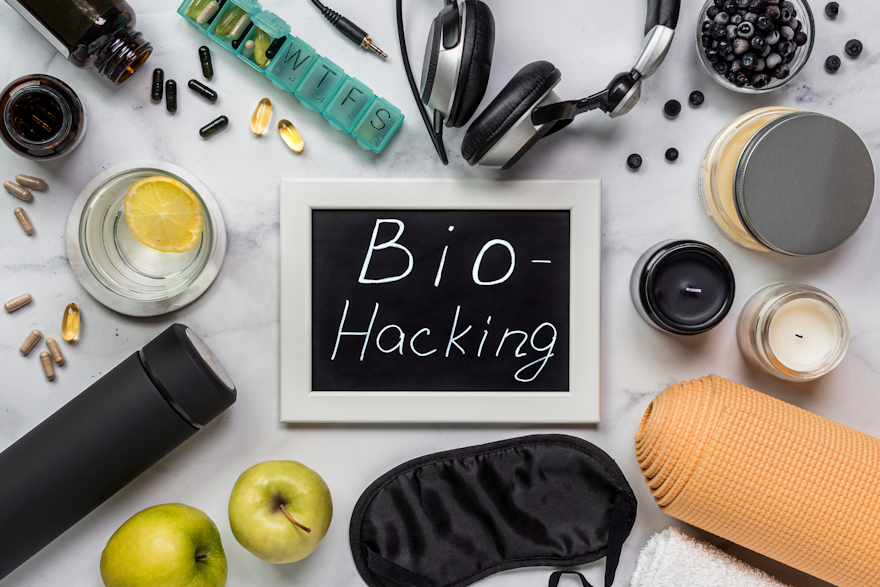Dans un monde où chacun aspire à vivre mieux, plus longtemps et en meilleure santé, une approche novatrice a fait son apparition : le biohacking. À la croisée des avancées scientifiques et des pratiques ancestrales, il propose des solutions personnalisées pour optimiser les performances du corps et de l’esprit.
Si le biohacking s’appuie souvent sur des outils technologiques sophistiqués, il partage aussi des fondements avec la naturopathie, qui privilégie une approche globale et naturelle du bien-être. Cet article explore cette discipline, ses pratiques et ses liens avec les méthodes naturelles.
Qu’est-ce que le Biohacking ?
Le biohacking se définit comme l’ensemble des techniques et des pratiques visant à améliorer les fonctions biologiques grâce à une meilleure compréhension de notre corps.
Il repose sur trois grands principes :
- Personnalisation basée sur les données : utilisation de tests biologiques (analyses sanguines) et d’applications de suivi (montres connectées, trackers de sommeil).
- Optimisation par des interventions ciblées : diètes spécifiques, gestion des rythmes circadiens, compléments alimentaires.
- Combinaison de pratiques modernes et ancestrales : méditation, jeûne intermittent, phytothérapie avec usage notamment de plantes adaptogènes.
Ainsi, le biohacking va de l’utilisation d’outils technologiques avancés à des gestes simples et naturels de prévention à la santé.

Les Liens entre Biohacking et Naturopathie
La naturopathie et le biohacking partagent une même vision : celle d’un bien-être global, préventif et durable.
- La santé personnalisée : En naturopathie comme en biohacking, chaque individu est unique, et les solutions doivent être adaptées à ses besoins spécifiques.
- Le respect de la nature : Tandis que la naturopathie s’appuie sur les ressources naturelles et l'energie vitale des personnes dans une approche fondée sur l’équilibre, le biohacking intègre des techniques naturelles dans une démarche axée sur l’optimisation des performances.
- Une approche holistique : Corps, esprit et environnement sont considérés comme interdépendants.
Applications Concrètes du Biohacking
Le Jeûne Intermittent
- Déjà pratiqué en naturopathie, le jeûne intermittent (alternance de périodes de jeûne et de repas) vise à réduire l’inflammation, réguler les niveaux d’insuline et stimuler l’autophagie (le recyclage des cellules endommagées). Certaines études ont montré qu’il pouvait aider à prévenir les maladies chroniques, notamment le diabète de type 2 et les maladies cardiovasculaires.
La Cohérence Cardiaque
- Technique simple et naturelle, la cohérence cardiaque repose sur une respiration lente et régulière pour équilibrer le système nerveux et le ryhtme cardiaque. Elle est utilisée pour réduire le stress, améliorer le sommeil et renforcer l’immunité. Certaines recherches montrent qu’elle peut aider à diminuer le cortisol, favorisant une meilleure gestion des émotions.
Les Plantes Adaptogènes
- Ces plantes (ashwagandha, rhodiole, ginseng) sont utilisée en phytothérapie et représente un outil précieux pour les biohackers. Elles permettent à l’organisme de mieux s’adapter aux stress physiques et émotionnels, tout en augmentant la vitalité. Leur efficacité est confirmée par des études sur la réduction de l’anxiété et le soutien du système immunitaire.
La Photobiomodulation
- Méthode moderne utilisant des lumières rouges et infrarouges pour stimuler les mitochondries, la photobiomodulation peut accélèrer la récupération musculaire et soutient la santé cognitive. Bien que récente, elle s’inscrit dans une démarche proche de la naturopathie, en favorisant la régénération naturelle des tissus.
La Cryothérapie
- L’exposition au froid intense pendant quelques minutes stimule la circulation sanguine, réduit l’inflammation et libère des endorphines. Elle s’inscrit dans la lignée des pratiques hydrothérapiques traditionnelles utilisées en naturopathie. Ses bienfaits sont reconnus pour la récupération physique et l’amélioration de l’humeur.
Les Limites et Précautions du Biohacking
Malgré ses promesses, le biohacking comporte parfois des risques :
- Sur-optimisation : Chercher à maximiser chaque paramètre peut au contraire entraîner une fatigue ou une obsession contre-productive.
- Inadaptation individuelle : Ce qui fonctionne pour une personne peut être inefficace, voire nuisible, pour une autre.
Pour éviter ces écueils, il est essentiel de consulter des professionnels, naturopathes et médecins, afin d’élaborer des plans adaptés et sécurisés.
Conclusion : Une Nouvelle Vision de la Santé
Le biohacking, avec son approche modernisée et axée sur les données, représente une approche moderne de la naturopathie. Ces deux disciplines offrent des outils puissants pour prendre soin de soi, prévenir les maladies et optimiser ses performances.
En combinant science, technologie et sagesse ancestrale, le biohacking ouvre une voie fascinante vers une santé plus consciente et proactive. Cependant, comme pour toute démarche de santé, l’équilibre et la personnalisation restent les clés d’une pratique réussie.

Références
- Mattson, M. P., Longo, V. D., & Harvie, M. (2017). "Impact of intermittent fasting on health and disease processes". Ageing Research Reviews.
- Patterson, R. E., et al. (2015). "Fasting for health: intermittent fasting and caloric restriction mechanisms and clinical applications". Journal of the Academy of Nutrition and Dietetics.
- Hamblin, M. R. (2017). "Mechanisms and applications of the anti-inflammatory effects of photobiomodulation". APL Bioengineering.
- McCraty, R., et al. (2003). "The effects of emotions on short-term power spectrum analysis of heart rate variability". American Journal of Cardiology.
- Lombardi, G., et al. (2017). "The efficacy of whole-body cryotherapy on recovery in athletes". International Journal of Sports Physiology and Performance.


